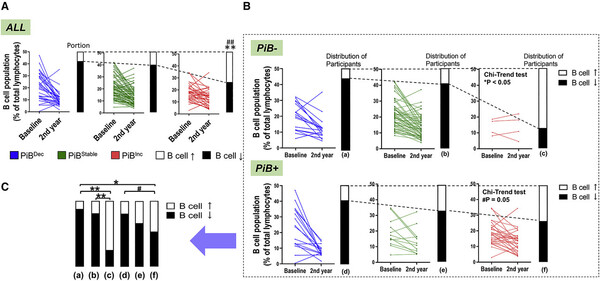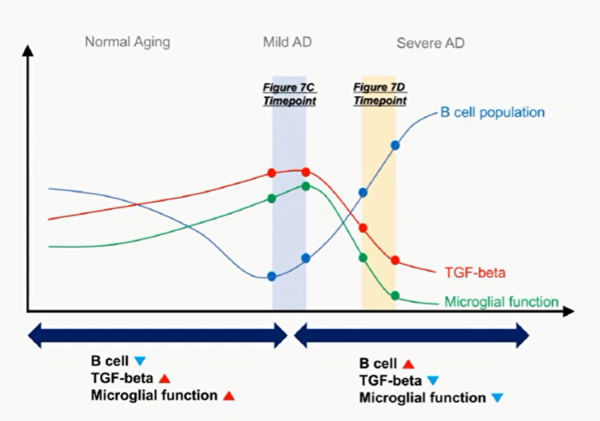The B cell, cited as the core of immune response, can accelerate the progression of Alzheimer’s disease, a recent study showed.

Professor Park Jong-chan of the Department of Biophysics at Sung Kyun Kwan University released the result of his “Study on B lymphocyte profiling and its association with microglial cells in Alzheimer's disease” in the webinar at the Biological Research Information Center on Tuesday. Park has conducted the study at Seoul National University College of Medicine and at the current department since 2023.
“We have identified a positive correlation between B cells as well in Alzheimer's patients with increased amyloid beta,” he said. “This shows that B cell growth is associated with the progression of Alzheimer's disease.”

According to Professor Park, the Seoul National University Hospital divided 133 Alzheimer’s patients into three groups – patients whose beta amyloid decreased, those whose beta amyloid remained the same, and those with increased beta-amyloid – through PiB (Pittsburg compound B)-PET tests. Each group’s beta-amyloid changes were collected based on the result of a two-year analysis.
The study result showed the B cells had a significant association with beta-amyloid changes. Still, other lymphocytes, such as T cells and NK cells, were found to have no correlations.
“Previously, it was known that B cells decrease with aging progress. However, this study showed the B cells, which slightly increased in patients with mild Alzheimer's disease, sharply increased in patients with severe Alzheimer's disease,” he said. “I guess aging factors might have hidden them until then.”

Besides, the analysis of B cell receptor (BCR) repertoire data using next-generation sequencing (NGS) has confirmed the simultaneous increase of B cells and immunoglobulin G (IgG). In contrast, it negatively correlated with transforming growth factor- ß (TGF-Beta).
Park added that the IgG increase could reduce microglia and beta-amyloid clearance function.
Microglial cells play a role in removing waste near white matter in the brain. That explains why the increase in IgG, which degrades this function, affects Alzheimer's disease.
“It has already been known that microglial cells change when IgG is treated by reducing B cells,” Professor Park said. “However, the fact that B cells can affect not only microglia but also beta-amyloid and TGF-Beta showed the possibility of developing antibody-based treatments in the future.”

